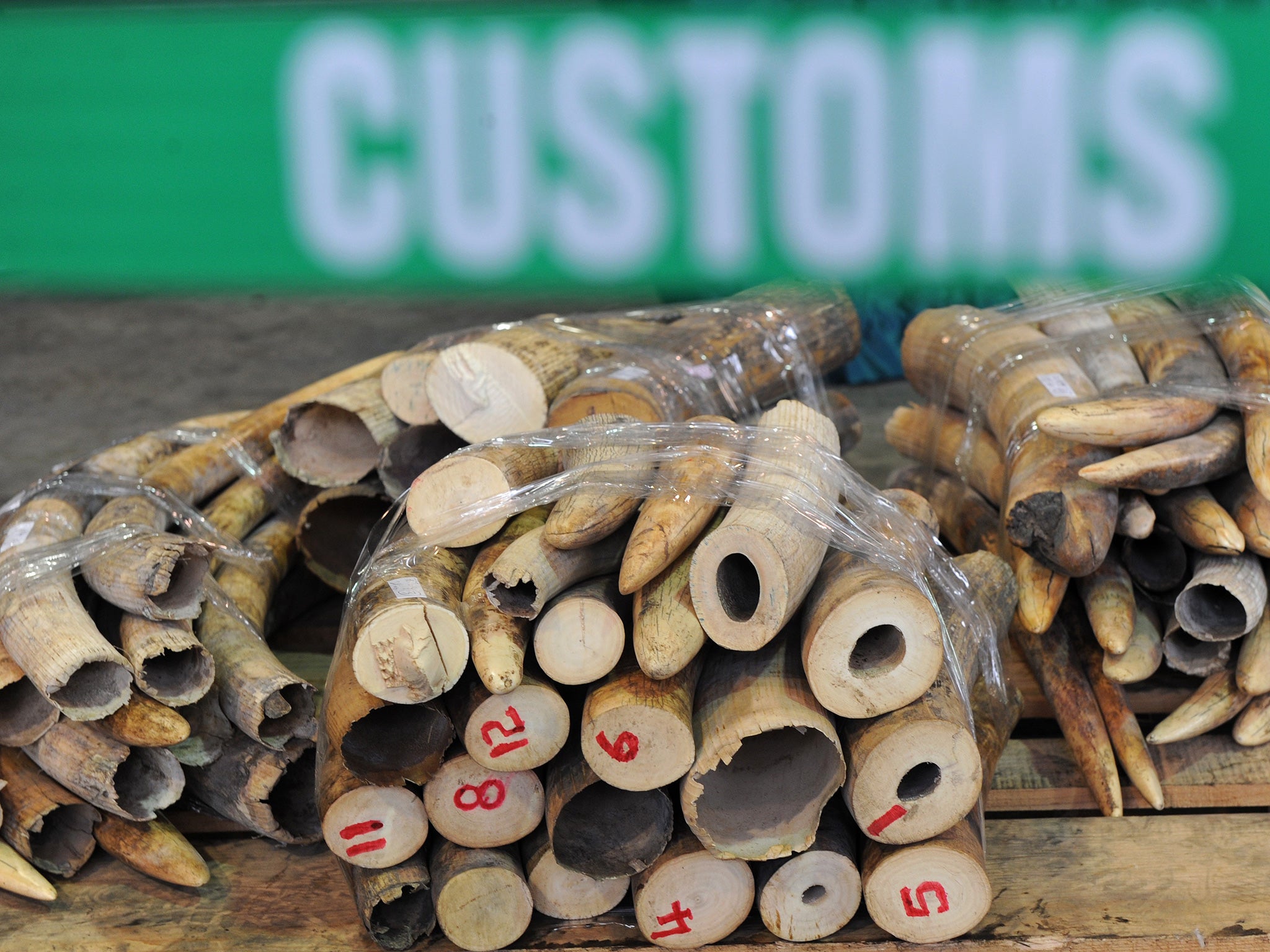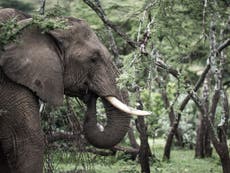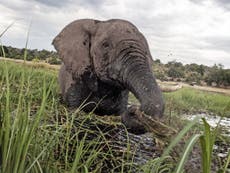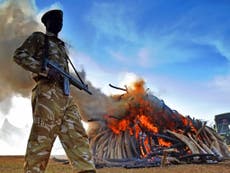Giants Club: Kenya's fight to set up the world’s best wildlife law enforcement unit and how a new £64m DNA lab is helping battle the poaching business
The government of Kenya set up the semi-autonomous Kenya Wildlife Service (KWS) in 1989

The price of ivory has soared four-fold since 2007, as has the scale of elephant poaching, driven by high demand across Asia. At a time when smuggled rhino horn also sells for more than $60,000 a kilogram, poaching has never been so lucrative for criminal cartels.
In 1989, in response to a decade of unprecedented slaughter of elephants and rhinos, the government of Kenya set up the semi-autonomous Kenya Wildlife Service (KWS) to take on the poachers.
Today, KWS enforcement is more sophisticated than ever – but so are the wildlife criminals. The gangs are tech savvy, with enough cash to fund their activities with GPS trackers, micro lights, satellite phones, and night-vision devices.
Three months ago, Kenya’s Cabinet Secretary for Environment and Natural Resources, Professor Judi Wakhungu, commissioned eastern Africa’s first genetic and forensic laboratory at the KWS headquarters to help prosecute such gangs. At the time she noted that the commissioning marked a significant milestone: this is only the second such lab in Africa, after one in Pretoria dealing with wildlife forensics. The new facility is establishing a database of genetic markers that will aid in the quick and reliable identification of wildlife and its products. The aim is to hasten the prosecution and conviction of wildlife crime cases.
According to William Kiprono, the KWS Director General, “previously, it was difficult to prove a case in court because suspects claimed that the animals in their possession at the time of arrest were part of their domestic flock, such as goats.”
A five-year study by the Kenyan NGO Wildlife Direct between January 2008 and June 2013 found more than 15% of suspects’ cases were withdrawn due to inconclusive investigations and missing evidence. The report concluded that wildlife-related crimes were often categorised as petty offences. Lenient sentences followed, and the biometrics of offenders went unrecorded. The new, tougher wildlife law has begun to address this.
According to KWS, the bush meat trade has intensified as poachers diversify into it; consequently, some herbivore populations have declined. The illegal trade is also leading to the spread of zoonotic diseases, according to the UN.
In response to escalating poaching and trafficking, Kenya’s President Uhuru Kenyatta in March 2013 formed an inter-agency anti-poaching crack unit – comprising specialised officers from the Administration Police, KWS and General Service Unit – which stepped up the war on poachers.
This initiative, alongside the new wildlife law, in force since January 2014, which now has tougher penalties, has seen the poaching of elephants fall by 46 per cent and rhinos 41 per cent in the year to 2014. The conservation success has also been attributed to increased local community engagement, recruitment of additional rangers and force modernisation.
KWS estimates the total cost of training and equipping one ranger at around £4000, and has set out a plan of action to recruit more rangers and upgrade their skills and resources to outsmart the poachers.
The conservation efforts are labour intensive with rangers, having to physically manage wildlife-protected areas supported by aerial surveillance. At present, one ranger is responsible for 150 square kilometres of land. The KWS aims to halve that area. With better technology, they believe each ranger’s effectiveness can be increased five-fold.
The KWS is looking to acquire tracking devices, such as digital radios, which can transmit data and voice information, to analyse trends and aid the war on poaching cartels.
KWS security operations are intelligence-driven. That is why the KWS law enforcement academy also intends to acquire state-of-the-art computers, an upgraded library and equipment for simulations.
According to KWS, “Even the best trained and equipped wildlife security and law enforcement agents can’t win the wildlife wars alone. Success also depends on involving communities, collaboration with other law enforcement agencies, other stakeholders as well as partners and land use planning that will secure wildlife corridors for the larger, wide-ranging animals.”
“Simply put, KWS plans to be the best wildlife law enforcement unit in the world.”
This article was provided by the Kenyan Wildlife Service to promote a greater understanding of Kenya and its natural wonders to an international audience.
- For more about the Giants Club: independent.co.uk/voices/campaigns/giantsclub
- To donate to Space for Giants: spaceforgiants.org
- Corporate donors looking to partner the Giants Club should contact: giantsclub@spaceforgiants.org




Join our commenting forum
Join thought-provoking conversations, follow other Independent readers and see their replies